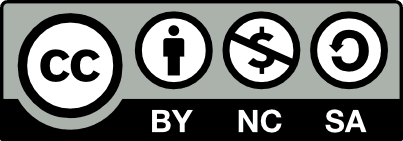
/
Dogodki
/
Konference
Institutions for the upbringing and education of children with sensory disabilities in Slovenia and Croatia in the period between the two wars – mutual contacts, connections abroad and presentation to the public


To delo avtorja Dunja Dobaja je ponujeno pod Creative Commons Priznanje avtorstva-Nekomercialno-Deljenje pod enakimi pogoji 4.0 Mednarodna
Datoteke (1)
Opis
Institutions for the education of children with sensory disabilities attached great importance to regular professional development and training of teaching staff. Teachers deepened their knowledge by reading foreign specialist literature and visiting similar institutions abroad. Contacts with foreign countries also took the form of visits by foreign experts. In the fall of 1928, for example, the institution for deaf children in Ljubljana was visited by professional teachers from Czechoslovakia. In July 1931, the Kingdom of Yugoslavia was visited by the deaf and blind writer Helen Keller, who received representatives of Yugoslav institutions for the education of children with sensory impairments in her home on the occasion of the World Conference of the Blind in New York in June 1931. On her journey through the Kingdom of Yugoslavia, she also visited institutions in Zagreb and Ljubljana. In an effort to break down prejudices in society and integrate children with sensory impairments into society, the aforementioned institutes have focused their activities on presenting their work to the general public. The Institute for the Education of Blind Children in Zagreb, for example, organized an excursion to Slovenia in May 1936 for students from higher classes. The students visited Ljubljana, Celje and Maribor and presented themselves to the public with concerts. Such events were also an opportunity for professional and social contacts between the institutes themselves.
Metapodatki (11)
- identifikatorhttps://hdl.handle.net/11686/71076
- naslov
- Institutions for the upbringing and education of children with sensory disabilities in Slovenia and Croatia in the period between the two wars – mutual contacts, connections abroad and presentation to the public
- avtor
- Dunja Dobaja
- soavtor
- Darja Zaviršek (mod.)
- predmet
- otroci
- Izobraževanje
- senzorične motnje
- Slovenija
- Hrvaška
- opis
- Institutions for the education of children with sensory disabilities attached great importance to regular professional development and training of teaching staff. Teachers deepened their knowledge by reading foreign specialist literature and visiting similar institutions abroad. Contacts with foreign countries also took the form of visits by foreign experts. In the fall of 1928, for example, the institution for deaf children in Ljubljana was visited by professional teachers from Czechoslovakia. In July 1931, the Kingdom of Yugoslavia was visited by the deaf and blind writer Helen Keller, who received representatives of Yugoslav institutions for the education of children with sensory impairments in her home on the occasion of the World Conference of the Blind in New York in June 1931. On her journey through the Kingdom of Yugoslavia, she also visited institutions in Zagreb and Ljubljana. In an effort to break down prejudices in society and integrate children with sensory impairments into society, the aforementioned institutes have focused their activities on presenting their work to the general public. The Institute for the Education of Blind Children in Zagreb, for example, organized an excursion to Slovenia in May 1936 for students from higher classes. The students visited Ljubljana, Celje and Maribor and presented themselves to the public with concerts. Such events were also an opportunity for professional and social contacts between the institutes themselves.
- datum
- 03. 10. 2024
- tip
- video
- jezik
- Angleščina
- jeDelOd
- pravice
- licenca: ccByNcSa